
Reigniting Your Passion for Creativity: How Artificnial Intelligence Helped

Reigniting Your Passion for Creativity: How Artificnial Intelligence Helped
Key Takeaways
- AI tools rekindled my creativity by breaking financial barriers for creative hobbies.
- Generative AI grants affordable and easy-to-use creative outlets.
- AI complements traditional methods, aiding in creative exploration.
Many fear that AI might stifle human creativity. However, my personal journey with creative hobbies and AI tools tells a different story. Let me share my story of using generative AI tools and how it helped me reconnect with my creative side.
I Always Fancied Myself a Creative
Animated movies were a huge part of my early childhood. The stunning visuals, the imaginative world-building, the gripping drama, and the epic orchestral scores made the real world look pale in comparison.
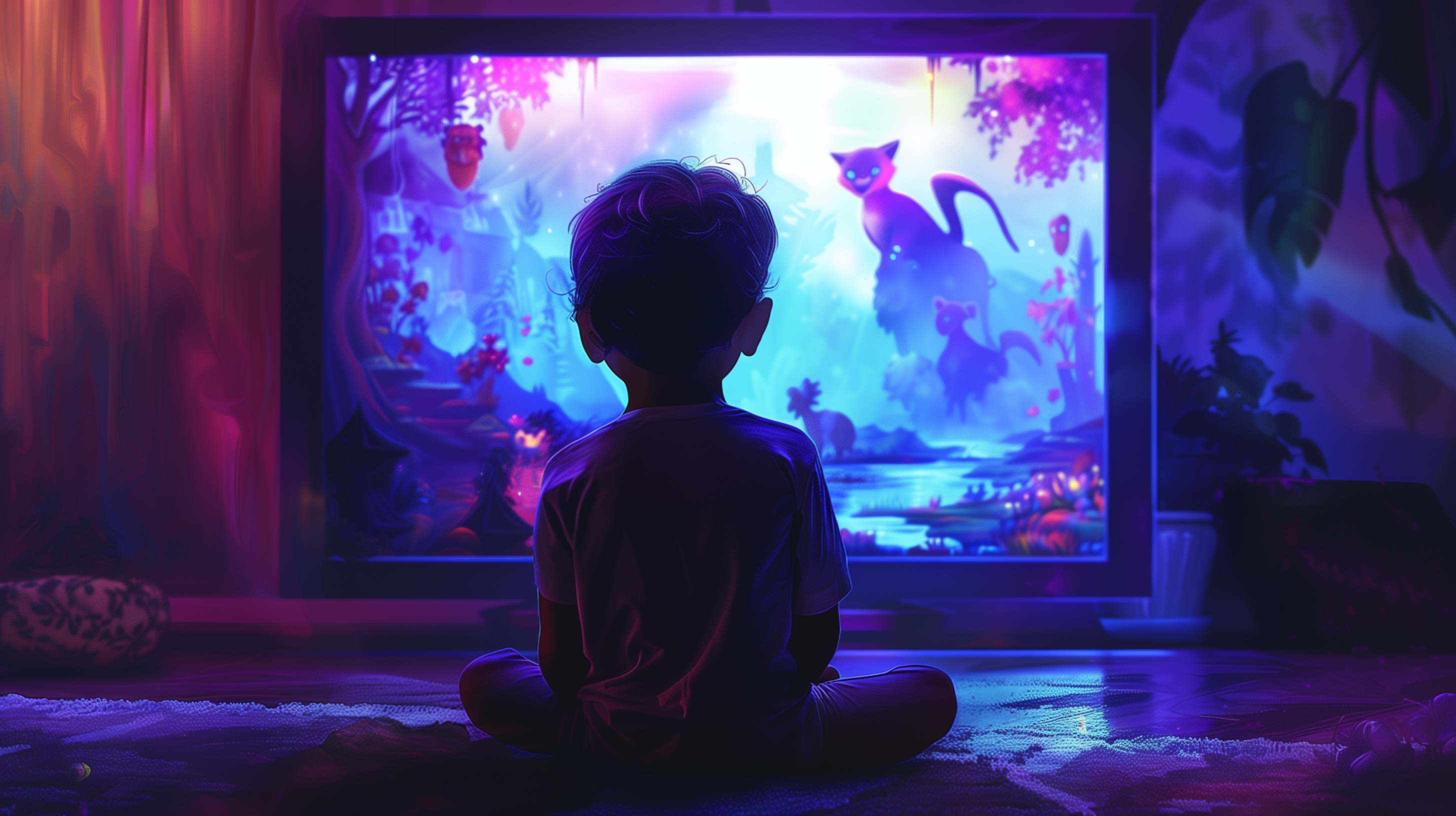
Dibakar Ghosh / How-To Geek | Midjourney
In fact, I was so consumed and immersed in these fantastical narratives that they slowly stirred a creative itch inside me. I, too, wanted to bring the worlds in my head out into the open. I wanted to tell people, “Hey, I created something. Come take a look (or listen).”
I ended up zoning in on my passion for storytelling. I started writing fanfiction about my fave anime films, building random worlds, or gleefully imagined all the ways I’d get back at my school bully.
If you do something for long enough, you get good at it. By the time I was in high school, I became confident in sharing my work, and people seemed to like it. Eventually, I landed my first paid writing gig in college. Fast-forward a decade from then, and here I am, making a living writing on the internet.
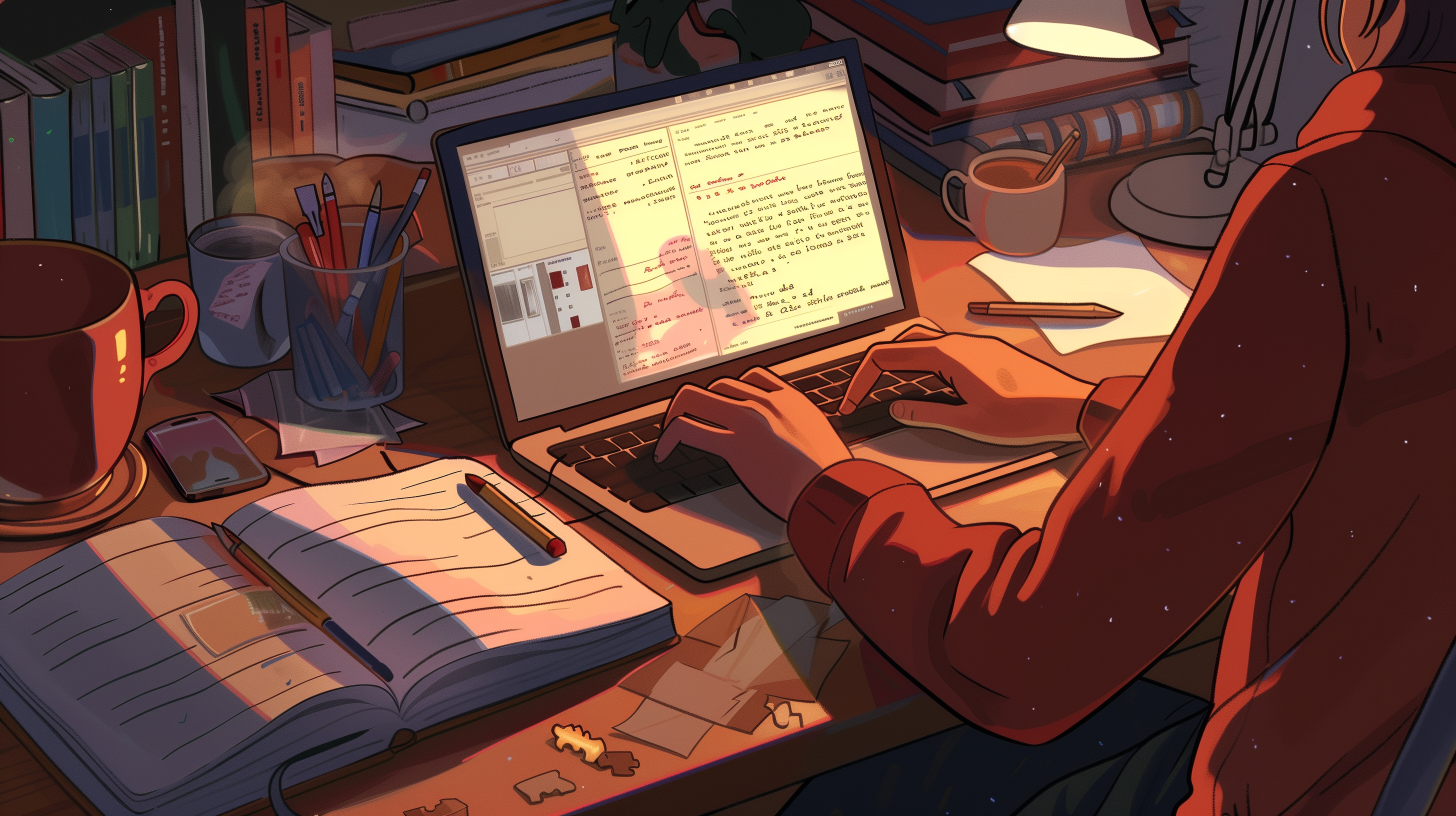
Dibakar Ghosh / How-To Geek | Midjourney
But here’s the twist—words were never my biggest passion. I always felt a stronger affinity towards music and art. So why didn’t I prioritize those over writing? Simple answer: I couldn’t!
Creative Hobbies Have a Barrier To Entry
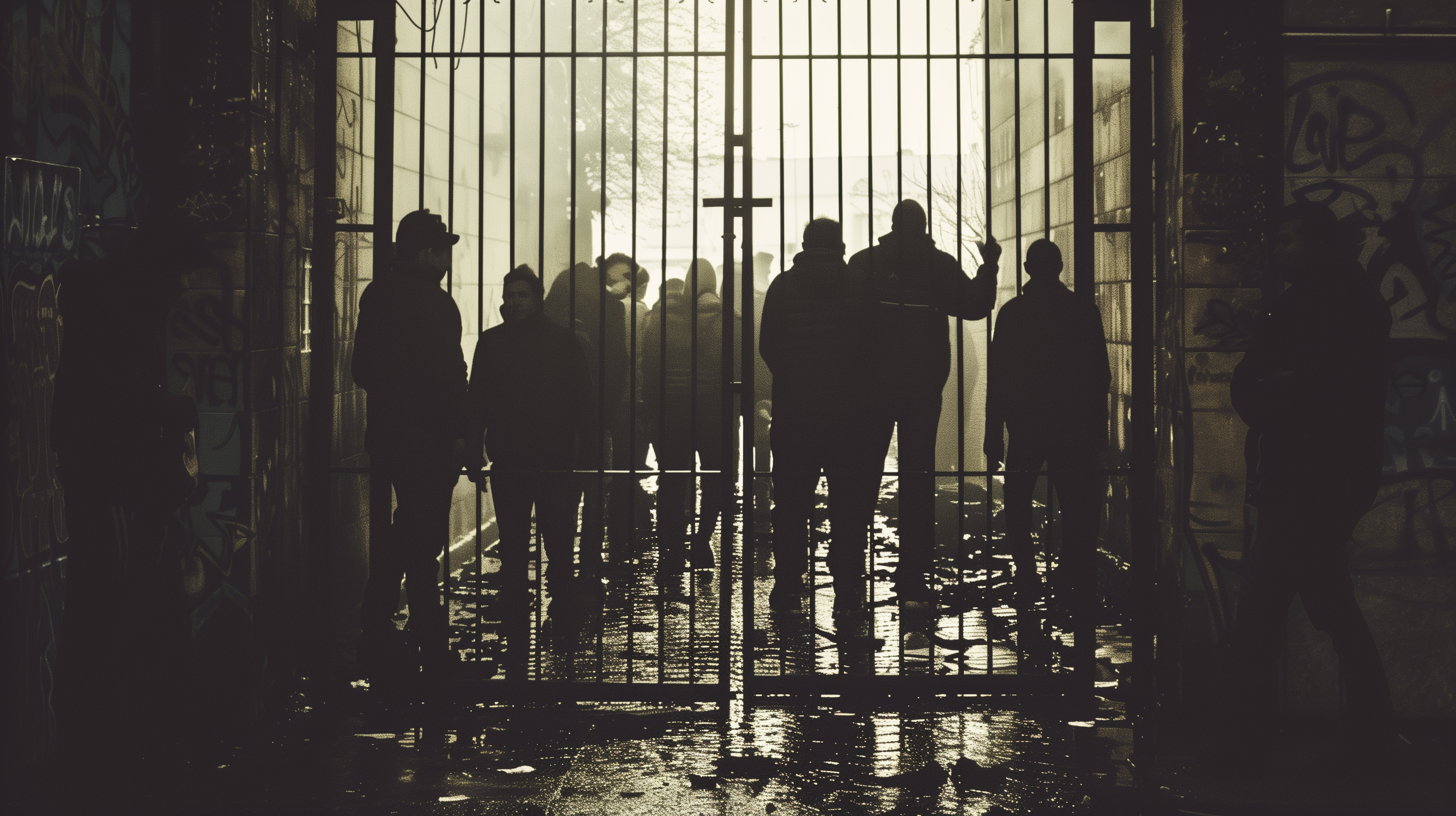
Dibakar Ghosh / How-To Geek | Midjourney
Money was tight when I was growing up. Creative pursuit felt like a luxury expense. Even though the desire was there, I couldn’t afford the necessary equipment or instruments to start practicing or experimenting.
Take digital art, for example. To get started, you need a decent computer, access to professional software, and a drawing tablet . That’s a substantial investment before you even begin to learn the craft.
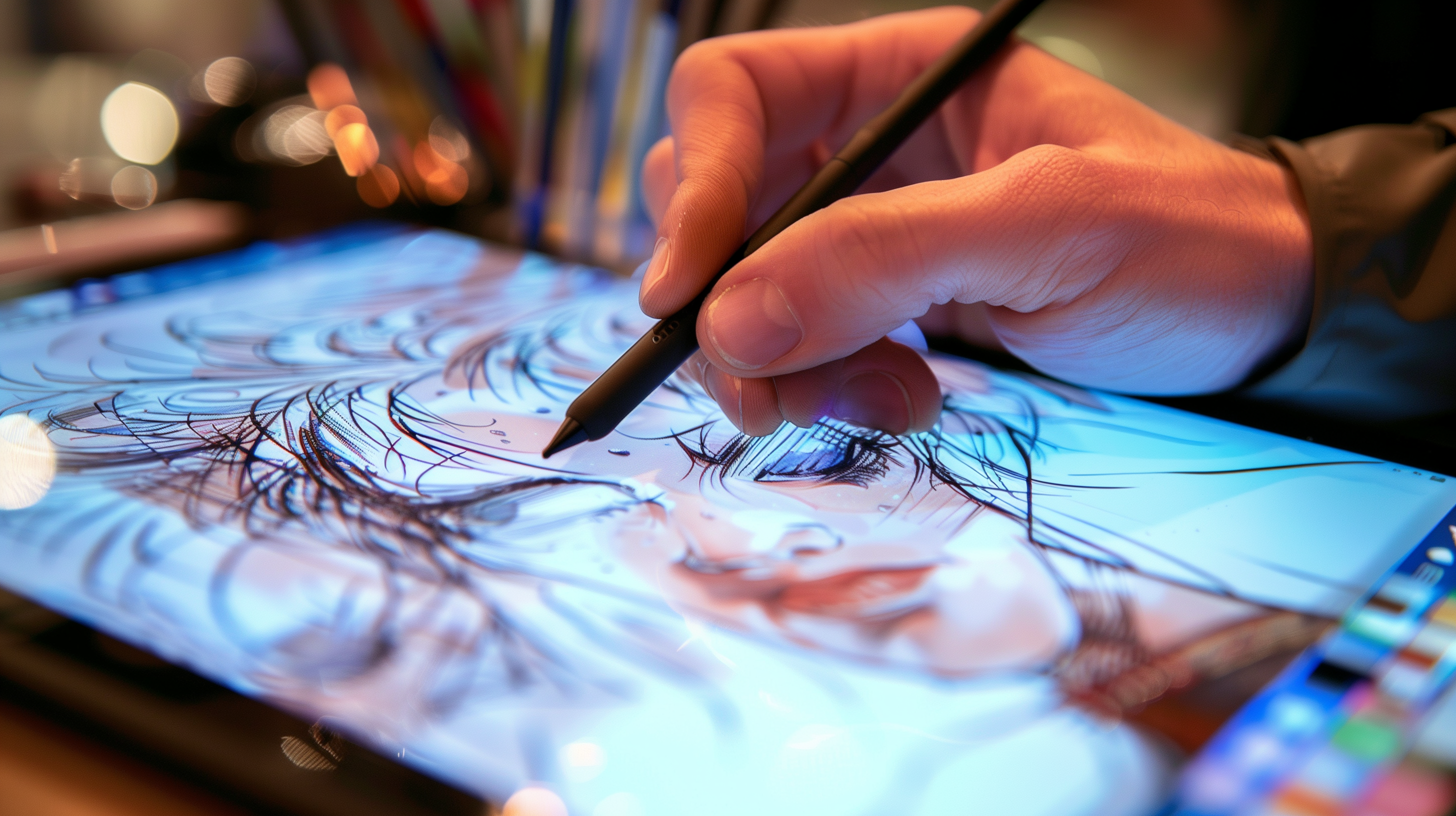
Dibakar Ghosh / How-To Geek | Midjourney
Music production was even more expensive. While you might want to start with just one instrument—remember, juvenile me wanted to create epic symphonies with quartets sprinkled with piano jingles, solo guitar sections, and all that jazz.
Doing that by learning an instrument didn’t seem practical. So, my eyes were set on a digital audio workstation (DAW) —which, again, was very expensive and very complicated.
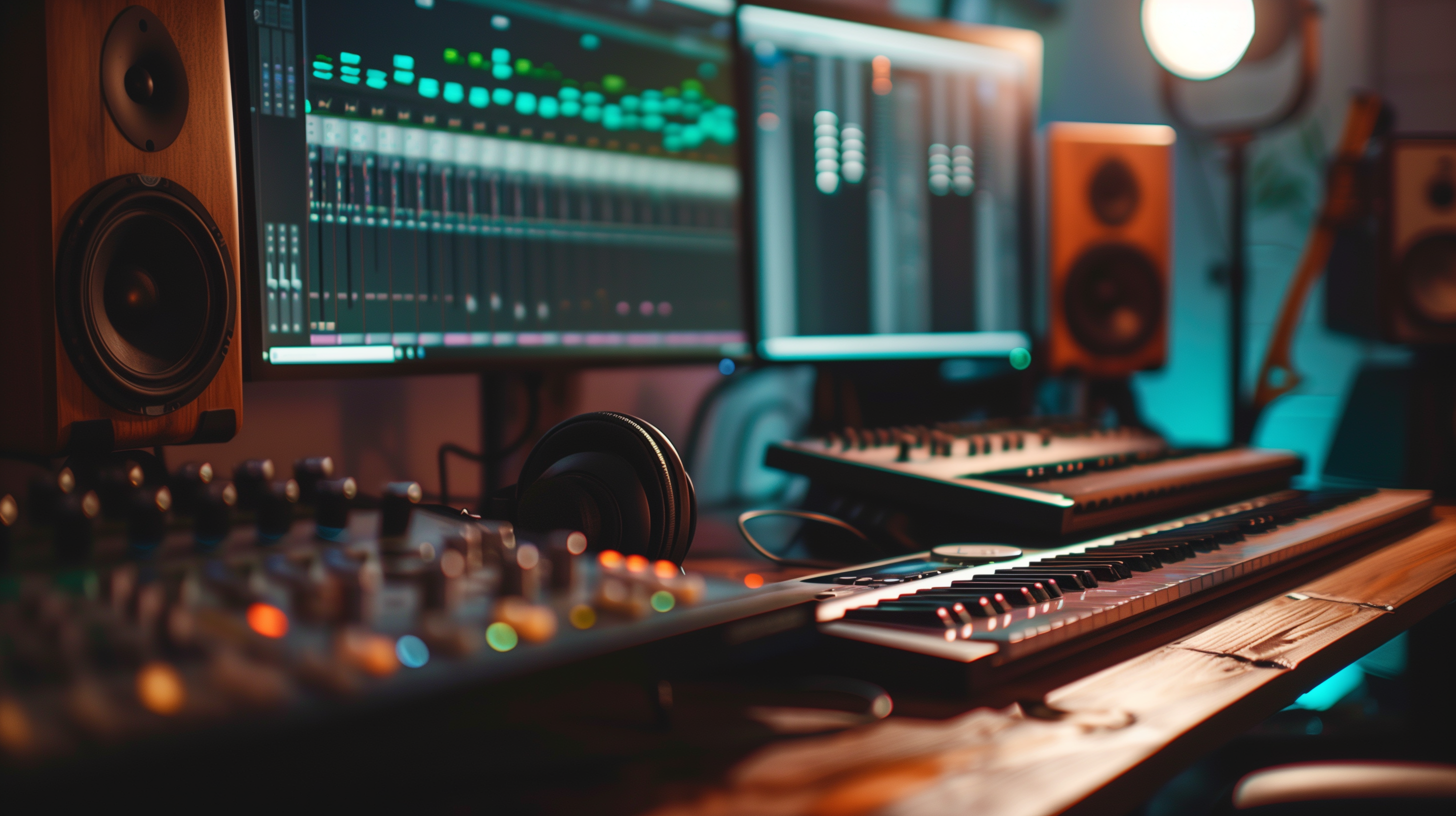
Dibakar Ghosh / How-To Geek | Midjourney
You know what wasn’t expensive, though? Paper! So, I bought lots of paper. Writing became my sole outlet for creative expression.
Now, the argument can be made—if I’m so passionate about art and music, couldn’t I start learning after I got a job? Well, yes! I could! But it became a problem of time, or more truthfully, priority.
In my mind, I wasn’t trying to become a professional artist or musician. I wanted to do this recreationally—at most to amuse my friends and family at gatherings. I didn’t want to be a big rock star living in hilltop houses who drove 15 cars.
So, investing years in just learning the ropes felt too much of a commitment. I told myself—maybe in another life—and I just gave up! That is until AI came into the picture.
How Generative AI Tools Broke These Barriers
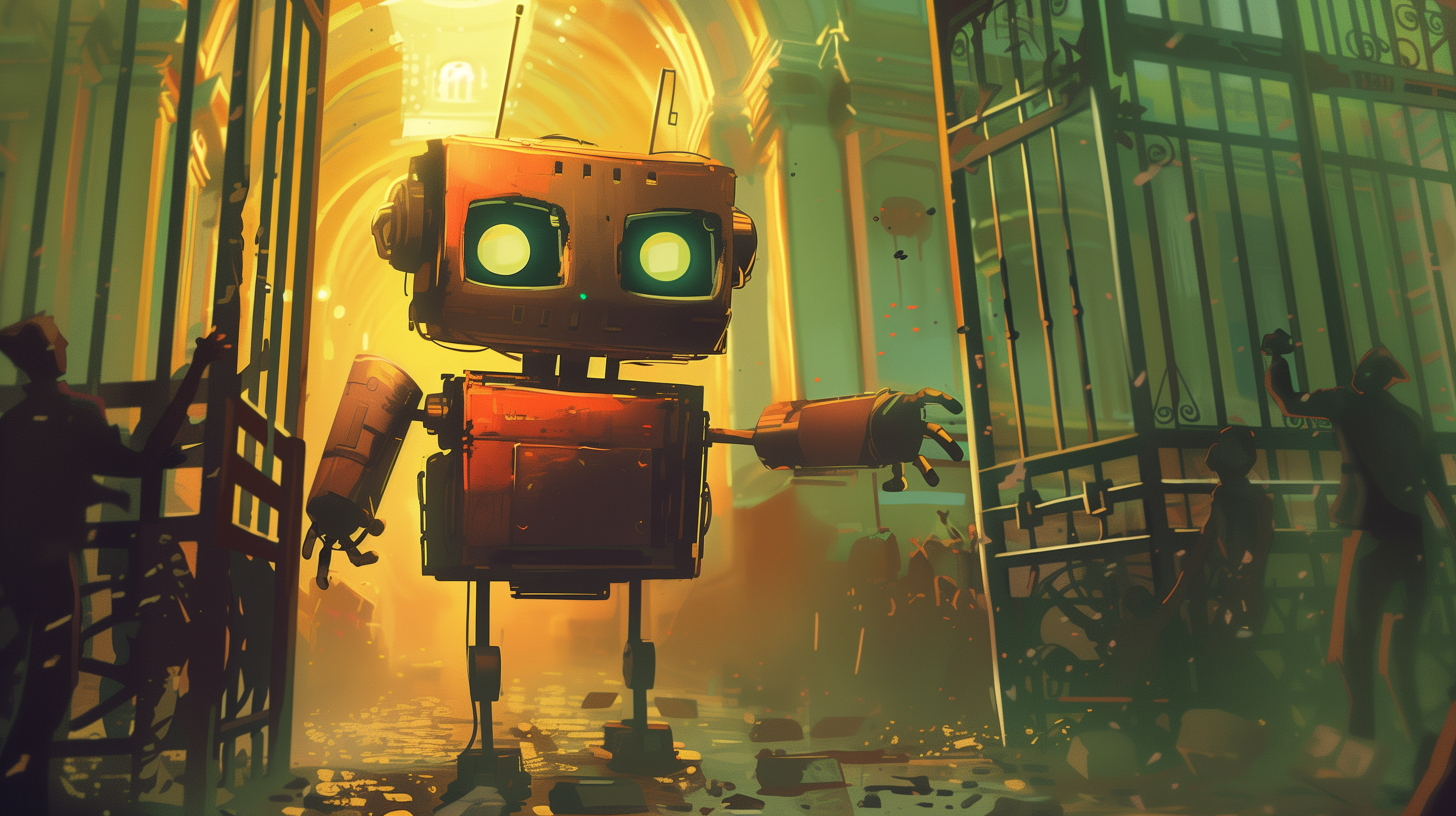
Dibakar Ghosh / How-To Geek | Midjourney
Generative AI has been a game changer for my creative hobbies. It rekindled the lost spark and helped explore new art forms and music styles.
It all began with Midjourney . I started using the tool in March 2023, when version 5 dropped. The notion that you could type in a few words, and it’d generate a highly detailed image for you in seconds was insane.
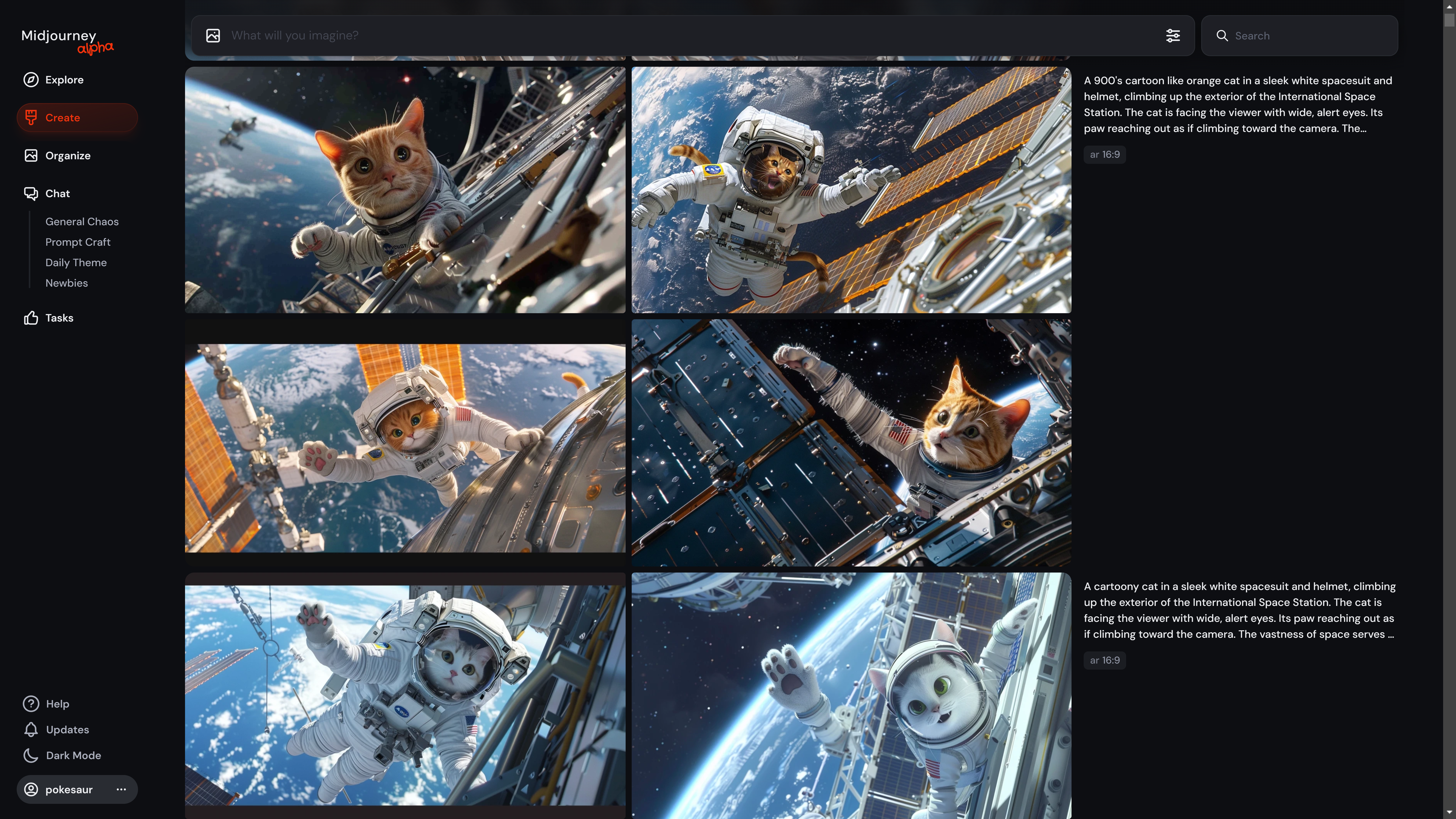
I quickly revisited my old notebook (yes, I have a notebook with my earlier ideas because digitizing them was a lot of work) and started playing with Midjourney.
Then, about a year later, Suno v3 dropped, followed by Udio . I have been using these AI text-to-song generators for three-four months now and have already generated over 1000 songs with them. It’s extremely fun and addictive.
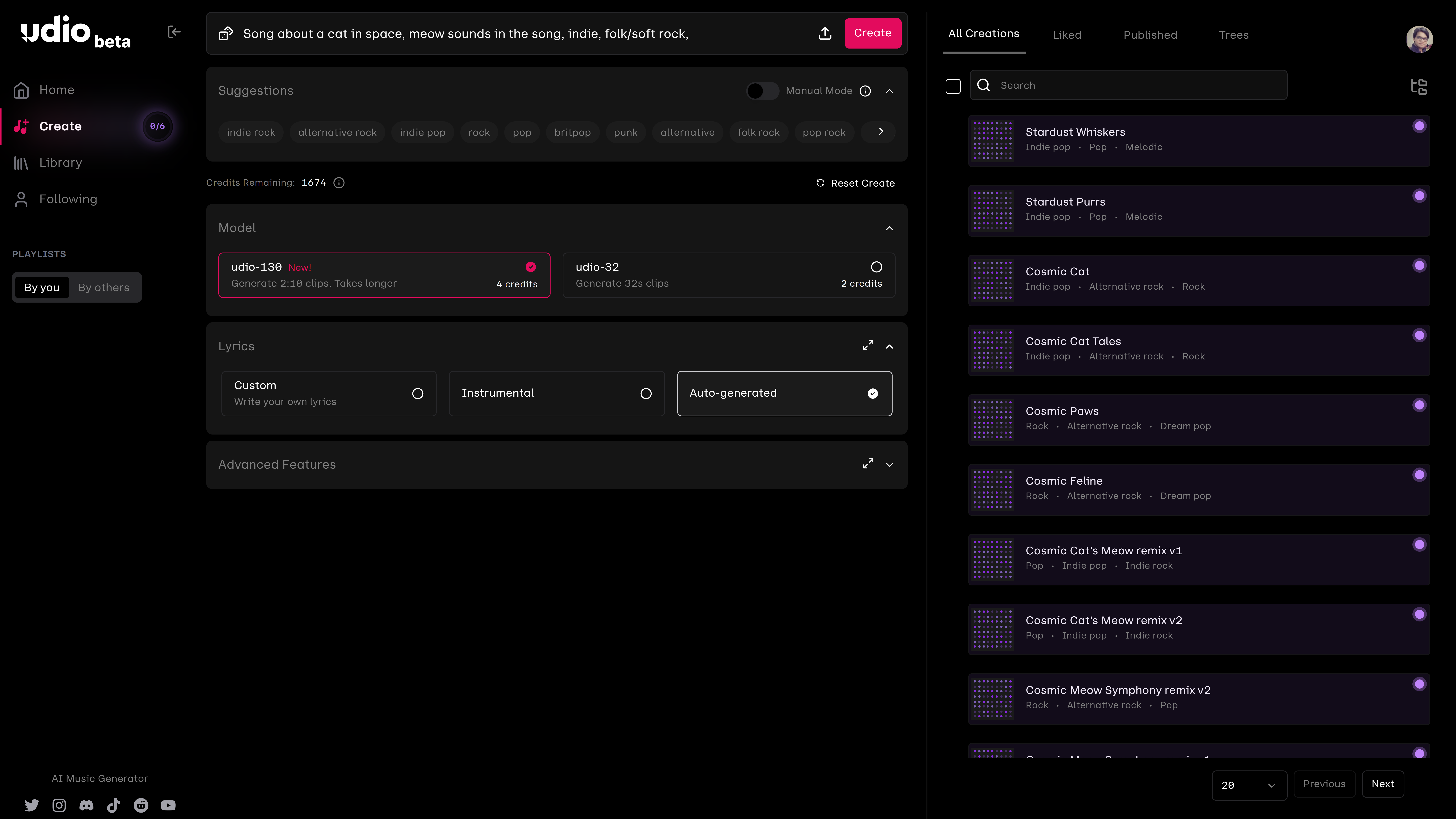
Now, all these tools—Midjourney, Suno, Udio—start at $10 a month, making them extremely affordable. Also, each tool has an intuitive interface with excellent documentation, so I don’t need to invest hours of training or a fancy course.
I could finally give my creative desires an easy outlet that didn’t hamper my normal routine—or demand significant financial or temporal investment. Each day, after work, I’d sit with these tools, spin up some ideas, hit generate, and share them with family and friends.
Now I Want to Learn
On the surface level, it seems like generative AI is all about you coming up with ideas and the AI creating them. This is true, but only if you desire surface-level results!
For example, let’s say I want to create an image of:
a cat in space.
I can prompt that into Midjourney, and this is what I’d end up with:
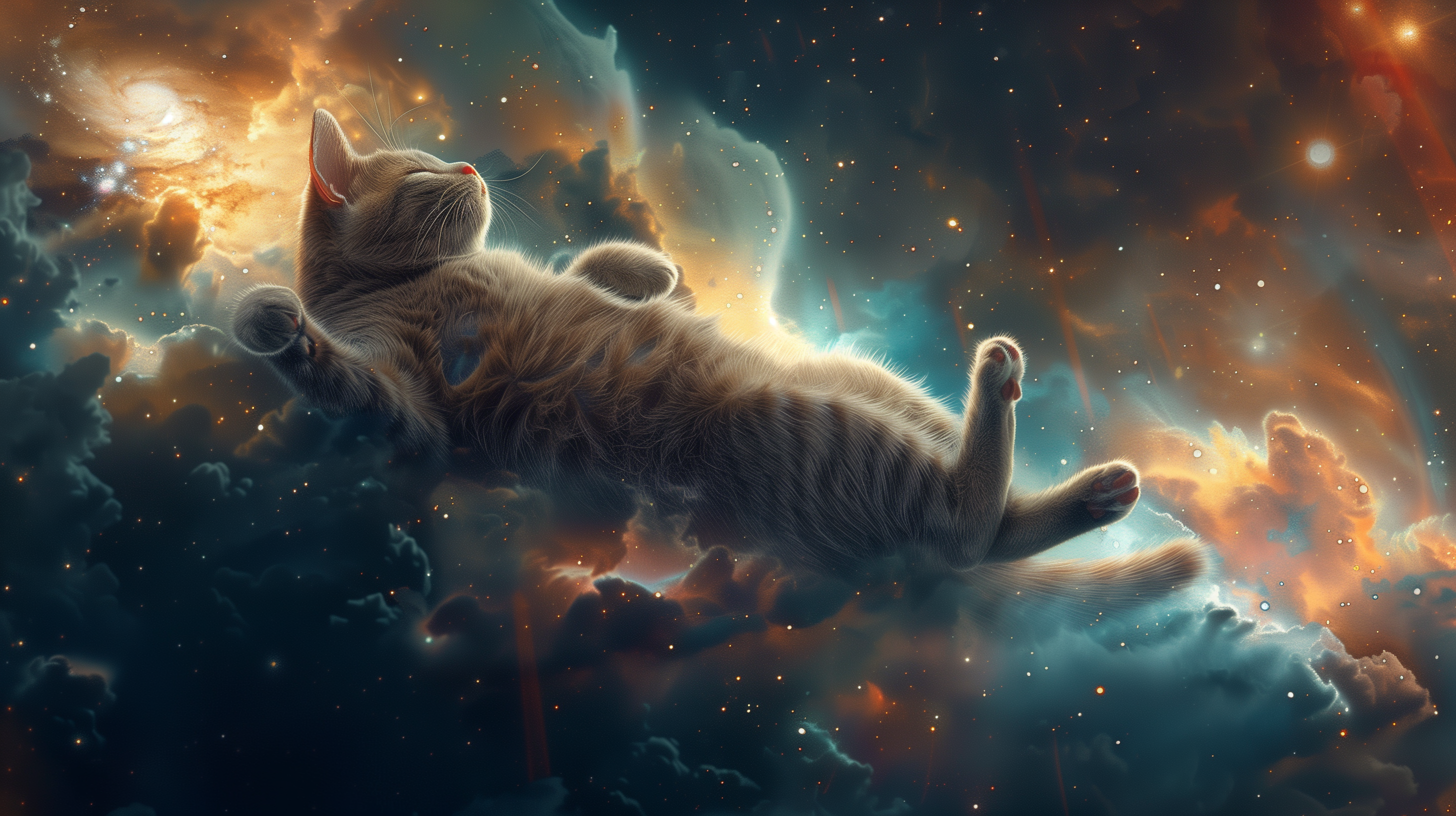
Dibakar Ghosh / How-To Geek | Midjourney
It looks cool, no doubt, but it isn’t what I had in mind. I was envisioning the cat wearing an astronaut suit, looking at me, while climbing up towards me on the International Space Station. So, to actually get what I want, I need to be more articulate with my prompt . Kind of like this:
A curious cat in a sleek white spacesuit and helmet, climbing up the exterior of the International Space Station. The cat is facing the viewer with wide, alert eyes. Its paw reaching out as if climbing toward the camera. The vastness of space serves as the background, with twinkling stars and Earth visible in the distance. The metallic structure of the ISS is visible around the cat, with solar panels and modules creating an intricate environment for the cat to navigate.
Here’s how the image came out:
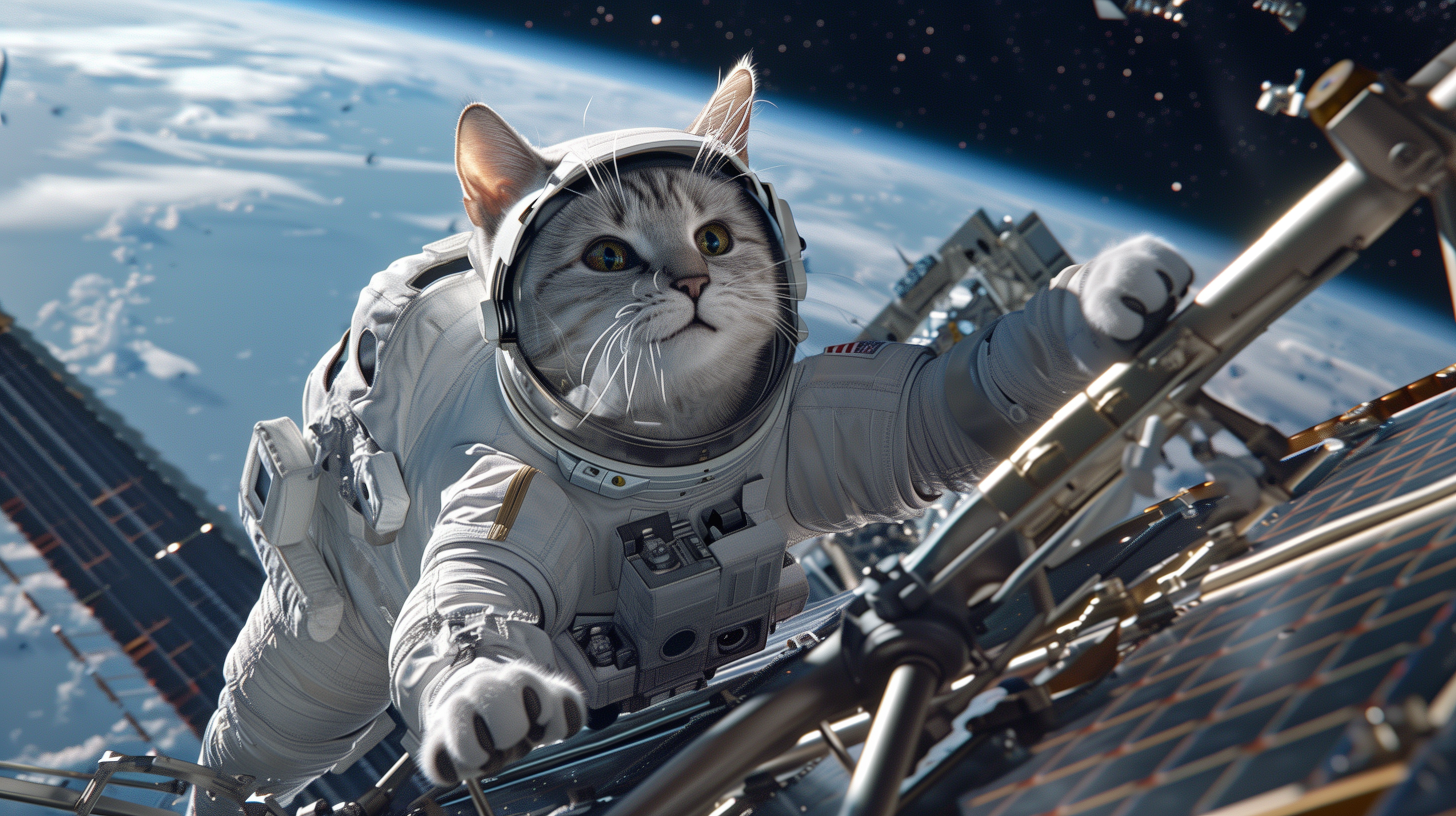
Dibakar Ghosh / How-To Geek | Midjourney
But again, Midjourney is trying to do its own thing, making this image look photorealistic. The image looks a bit more cartoony and animated in my head. So, let’s try modifying the prompt with those keywords, and this is what I end up with:
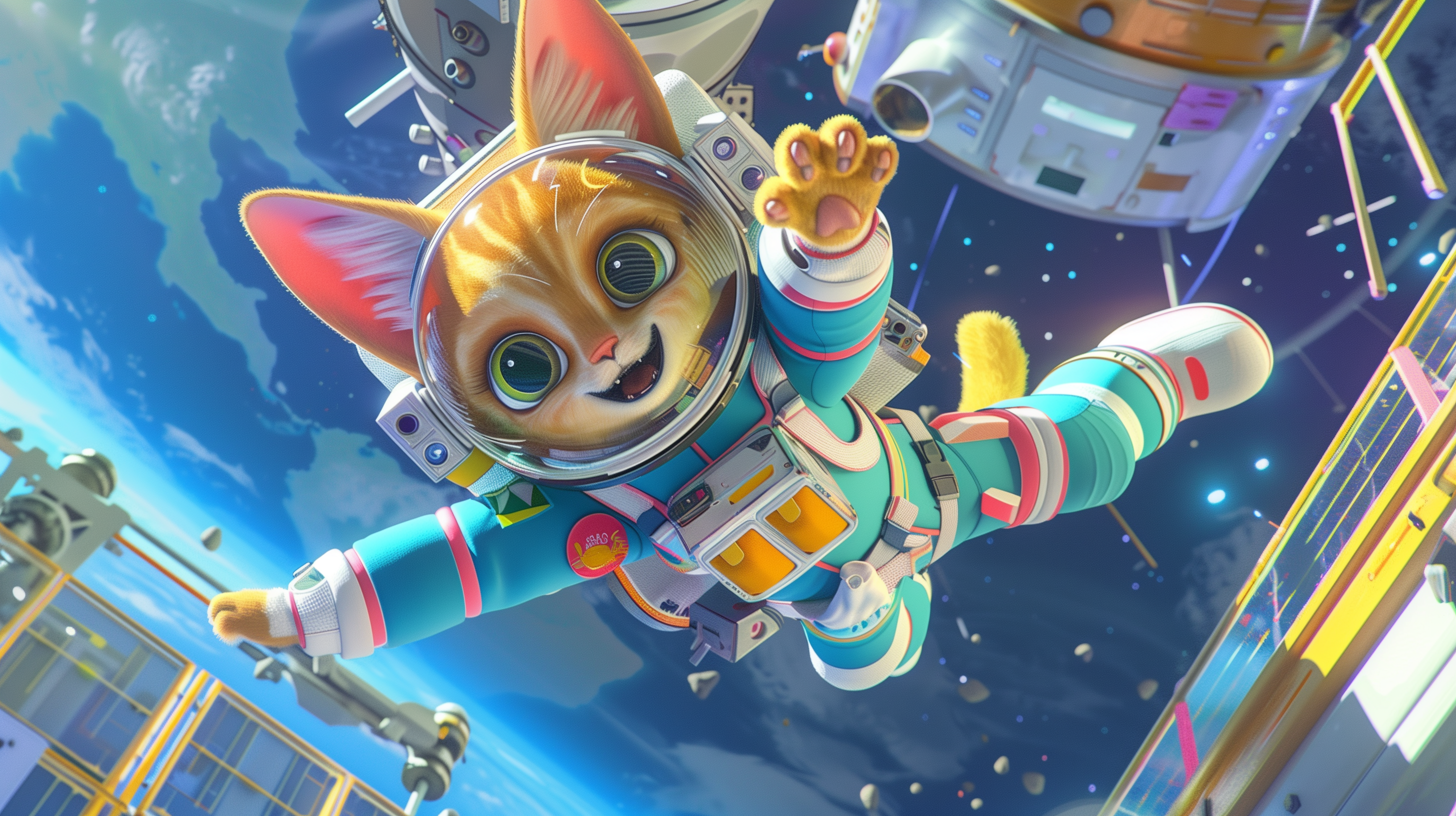
Dibakar Ghosh / How-To Geek | Midjourney
Unfortunately, it’s still not what I have in mind—and this is the essential issue with generative AI: AI can help you visualize an idea but not materialize a visualization.
If you have an idea, AI can help you visualize it. However, if you already have a visualization, AI can’t 100% accurately materialize it. In theory, it could, if you used the right prompt—but, let’s face it, some ideas are ineffable .
I also have the same trouble with AI music generators. For example, I can prompt it to write a song about a cat meowing in space, and it’ll generate a piece like this:
Your browser does not support the video tag.
While it’s the right genre, it’s not the exact tune or melody I had in mind. Also, I wanted some sections with actual cat meows! Unfortunately, even after heavily fiddling with the prompt, I just can’t get it to sound like it does in my head. Now, Udio does allow you to upload an audio clip, which it can then use as a reference to correct the melody. However, that means I already need to know how to play music, which I don’t!
This brings us back to square one. To accurately express the songs in my head, I need to know how to play an instrument. To accurately materialize the scenery in my mind, I need to know how to draw them myself.
Even if I use AI for polish, I need to know the basics and technicalities of music production or digital art if I truly want to express my creativity. As such, I’m ready to buy my first musical instrument.
I’m Planning To Buy a Keyboard
After using generative AI tools for over a year, I’m a bit disillusioned by them. I don’t think they are the creative powerhouse some people make it out to be. However, at the same time, they aren’t an enemy to creativity nor a useless gimmick.
If my story is an example, the strength of AI lies in its affordability and intuitive controls—where you can use natural language to tell it what you want. This allows you to infinitely experiment with different art forms and ideas to potentially discover something about yourself.
For me, it was the fact that I really like making music with inside jokes to make my friends and family laugh. I draw a lot of satisfaction and happiness from this process. And this self-discovery aided in my decision to buy a keyboard.
Also, I’m fully aware that even using my keyboard alone I won’t be able to thoroughly express myself—because I’m no skilled musician. This is again where AI can come in handy. I can use the keyboard to lay down the specific melodies and tunes I want. These can serve as reference for AI to generate a track that’s more inline with what I’ve envisioned.
At the end of the day, it’s all about creative expression. We all have creative ideas inside our heads, and it’s about getting those ideas out into the real world, so others can interact with them. Some ideas are musical, while some are visual, and thus, they each require a unique mode of expression.
Now, we have many instruments and equipment to help us express ourselves. AI is just a new one on that list. While it’s not the most potent and accurate—at least at the time of writing—it’s still great for exploring different ideas and partially materializing them as a prototype.
I personally feel that AI isn’t a replacement for traditional methods of creative expression. However, both can work in tandem to help us explore even deeper parts of our creative selves. This process can potentially help us come up with something truly unique and personal.
Also read:
- [New] Bridging the Gap Between YouTube & Instagram Stories Effectively for 2024
- [New] In 2024, Showcasing Design Brilliance Best 10 Text Setups in AE
- [New] Unwind in a World of Top Stress Busters for 2024
- [New] Webcam Techniques for Live Recording PowerPoint for 2024
- [Updated] 2024 Approved 5 Leading Resources to Masterfully Add Text Flair Online
- [Updated] Banishing Static-Like Motion in Aerial Videos for 2024
- [Updated] In 2024, Mastering In-Stream Ads on Facebook Configuration & Analysis Guide
- 2024 Approved EyeEm Pro Your Ultimate Guide to Free/Paid Substitutes
- 2024 Approved From Capture to Creation Discover the Best Montage Apps for Smartphones
- 2024 Approved Golden Nuggets Revealing the Hottest Reddit Topics (10)
- 2024 Approved Humor Unleashed Top Meme Creator
- 2024 Approved Individual Differences
- Explore Top Ringtones for Pixel Devices for 2024
- Framing the Frame Top Camera Techniques for Visuals for 2024
- In 2024, How to Transfer Contacts from Samsung Galaxy F15 5G To Phone | Dr.fone
- トラブルシューティング: DVDプレイヤーでエラー発生時の原因分析・修正手順
- Title: Reigniting Your Passion for Creativity: How Artificnial Intelligence Helped
- Author: Frank
- Created at : 2025-02-17 16:17:39
- Updated at : 2025-02-19 18:27:13
- Link: https://some-techniques.techidaily.com/reigniting-your-passion-for-creativity-how-artificnial-intelligence-helped/
- License: This work is licensed under CC BY-NC-SA 4.0.